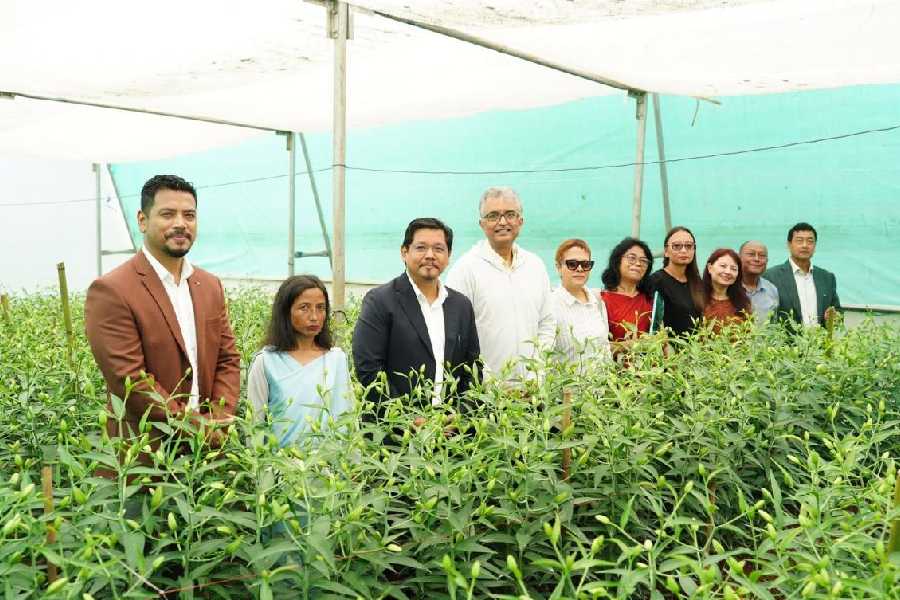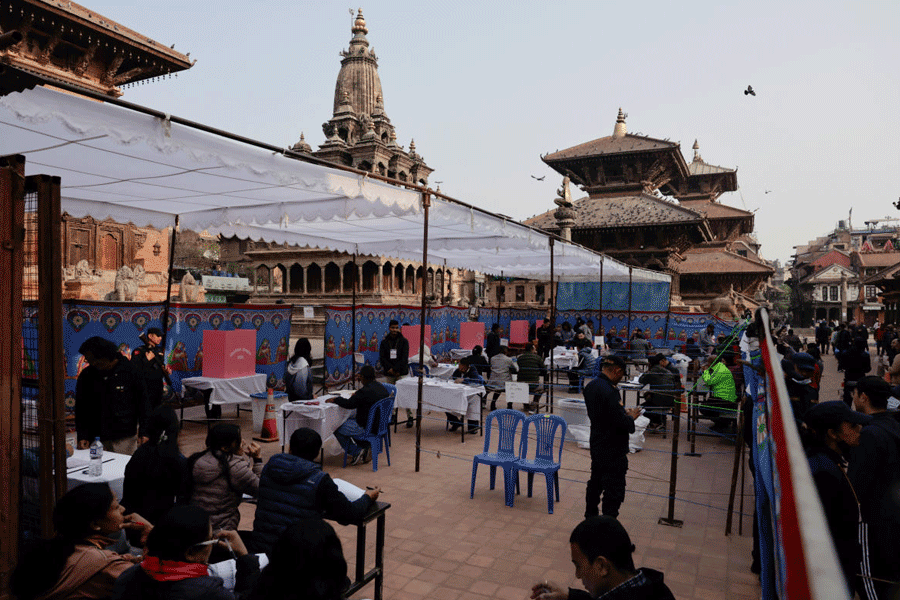The Meghalaya government has roped in two Bengal-based companies under its ₹240-crore Floriculture Mission 1.0, which aims to transform the state into a leading floriculture hub of the Northeast and the country.
Meghalaya chief minister Conrad K. Sangma announced the engagement of the two service providers while describing the “highest investment” ever in the state’s floriculture sector, which is expected to generate a direct profit of around ₹600 crore over the next few years.
The scheme will focus on cultivating high-value flowers such as orchids (Dendrobium, Cymbidium, Vanda, and Phalaenopsis) and oriental lilies, which are in high demand both in India and in global markets, an official statement said.
Sangma said that to ensure quality and sustainability, the government has “onboarded two experienced service providers — Darjeeling Gardens and North Bengal Floritech — who will offer technical expertise, high-quality planting materials, infrastructure support and assured market linkage through a three-year buyback arrangement”.
“Region-specific flower clusters are being developed using scientific cultivation techniques,” Sangma further said, adding: “We are building on the state’s natural strengths and innovating with improved systems.”
Based in Siliguri, Darjeeling Gardens Private Limited, established in 2008, focuses “on producing high-quality orchids tailored to fit specific environments” and has positioned itself as a “reputable and reliable supplier of orchids in the industry”. It has orchid farms in Mirik, Siliguri, Sonada and Jalpaiguri in North Bengal.
Siliguri-based North Bengal Floritech is a manufacturer of mushroom spawn, cut flowers and NP (Nitrogen-Phosphorus) fertiliser.
The NPP-led state government has earmarked ₹240 crore over the next three years under its Floriculture Mission 1.0.
Dwelling on the mission during a visit to Mawkriah village in East Khasi Hills, accompanied by agriculture minister Dr Ampareen Lyngdoh and MLA Ronnie Lyngdoh, the chief minister highlighted the mission’s goal of turning floriculture into a high-value, climate-resilient and sustainable livelihood option.
The state’s unique agroclimatic conditions, blending tropical and temperate elements, make it ideally suited for such crops.
The floriculture mission is part of the larger agricultural vision of the state, which includes successful programmes like the Lakadong Turmeric Mission, where production rose from 1,000 MT to over 20,000 MT due to focused investment, SHG-led processing units, and strong market linkages.
“Meghalaya’s agriculture vision is rooted in identifying our core strengths and scaling them,” Sangma said. “We aim to double farmers’ incomes, diversify rural livelihoods and make agriculture a cornerstone of sustainable development.”
To meet growing demand and support the expanding floriculture ecosystem, the government is planning to set up dedicated storage and logistics hubs across key production clusters. These hubs will ensure timely transportation, preservation of flower quality and efficient market access for farmers, the statement said.
Sangma also stated that initiatives like CM’s Farm Plus, CM-Assure, and others are being integrated to provide holistic support to farmers across Meghalaya.










